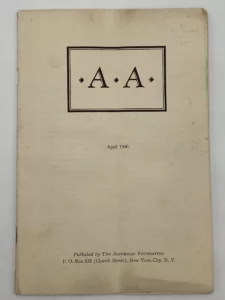
Larry Jewell of the Houston Press
Early AA History Larry Jewell, Houston Press & Early AA Public Outreach THE FIRST “A.A.” PAMPHLET AS DERIVED FROM THE SERIES OF ARTICLES FROM THE HOUSTON PRESS The content inside
24 Hour Helpline 510-839-8900 English 510-502-8560 Espanol Helplines are staffed 24/7 by A.A. member volunteers who have solved their drinking problem.
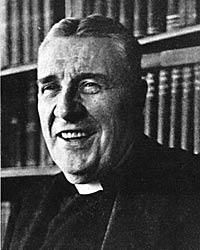
Sam Shoemaker, an Episcopal clergyman, played a pivotal role in the early development of Alcoholics Anonymous (AA). Born on December 27, 1893, in Baltimore, Maryland, Shoemaker contributed significantly to the spiritual foundation of AA and the formation of its Twelve Steps.
Shoemaker’s influence on AA can be traced back to the 1930s when he became acquainted with Bill Wilson, one of the co-founders of AA. Wilson, struggling with alcoholism, sought Shoemaker’s guidance, and their discussions laid the groundwork for integrating spiritual principles into the recovery process.
As an Episcopalian minister, Shoemaker emphasized the importance of surrendering to a higher power, a concept that later became a central theme in AA’s Twelve Steps. His spiritual teachings resonated with Wilson and other early AA members, shaping the program’s fundamental principles.
Shoemaker’s impact extended beyond individual interactions with AA co-founders. He was instrumental in shaping the spiritual philosophy that influenced the recovery program. His ideas about surrender, spiritual awakening, and reliance on a higher power became integral components of AA’s Twelve Steps.
Furthermore, Shoemaker’s contributions can be seen in the language used in AA literature. The concept of “God as we understand Him” and the emphasis on spiritual growth and humility were influenced by Shoemaker’s teachings.
Sam Shoemaker’s legacy lives on within the fabric of Alcoholics Anonymous. His spiritual insights and commitment to helping individuals find a higher purpose played a crucial role in the early development of the program, contributing to its effectiveness in assisting countless individuals on their journey to recovery.
By Sam Shoemaker (from the Oxford Group)
I stand by the door.
I neither go to far in, nor stay to far out.
The door is the most important door in the world –
It is the door through which men walk when they find God.
There is no use my going way inside and staying there,
When so many are still outside and they, as much as I,
Crave to know where the door is.
And all that so many ever find
Is only the wall where the door ought to be.
They creep along the wall like blind men,
With outstretched, groping hands,
Feeling for a door, knowing there must be a door,
Yet they never find it.
So I stand by the door.
The most tremendous thing in the world
Is for men to find that door – the door to God.
The most important thing that any man can do
Is to take hold of one of those blind, groping hands
And put it on the latch – the latch that only clicks
And opens to the man’s own touch.
Men die outside the door, as starving beggars die
On cold nights in cruel cities in the dead of winter.
Die for want of what is within their grasp.
They live on the other side of it – live because they have not found it.
Nothing else matters compared to helping them find it,
And open it, and walk in, and find Him.
So I stand by the door.
Go in great saints; go all the way in –
Go way down into the cavernous cellars,
And way up into the spacious attics.
It is a vast, roomy house, this house where God is.
Go into the deepest of hidden casements,
Of withdrawal, of silence, of sainthood.
Some must inhabit those inner rooms
And know the depths and heights of God,
And call outside to the rest of us how wonderful it is.
Sometimes I take a deeper look in.
Sometimes venture in a little farther,
But my place seems closer to the opening.
So I stand by the door.
There is another reason why I stand there.
Some people get part way in and become afraid
Lest God and the zeal of His house devour them;
For God is so very great and asks all of us.
And these people feel a cosmic claustrophobia
And want to get out. ‘Let me out!’ they cry.
And the people way inside only terrify them more.
Somebody must be by the door to tell them that they are spoiled.
For the old life, they have seen too much:
One taste of God and nothing but God will do any more.
Somebody must be watching for the frightened
Who seek to sneak out just where they came in,
To tell them how much better it is inside.
The people too far in do not see how near these are
To leaving – preoccupied with the wonder of it all.
Somebody must watch for those who have entered the door
But would like to run away. So for them too,
I stand by the door.
I admire the people who go way in.
But I wish they would not forget how it was
Before they got in. Then they would be able to help
The people who have not yet even found the door.
Or the people who want to run away again from God.
You can go in too deeply and stay in too long
And forget the people outside the door.
As for me, I shall take my old accustomed place,
Near enough to God to hear Him and know He is there,
But not so far from men as not to hear them,
And remember they are there too.
Where? Outside the door –
Thousands of them. Millions of them.
But – more important for me –
One of them, two of them, ten of them.
Whose hands I am intended to put on the latch.
So I shall stand by the door and wait
For those who seek it.
‘I had rather be a door-keeper
So I stand by the door.

Early AA History Larry Jewell, Houston Press & Early AA Public Outreach THE FIRST “A.A.” PAMPHLET AS DERIVED FROM THE SERIES OF ARTICLES FROM THE HOUSTON PRESS The content inside
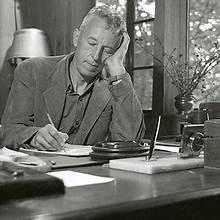
“Sobriety — freedom from alcohol —through the teaching and practice of the Twelve Steps, is the sole purpose of an A.A. group. Singleness of Purpose Sobriety — freedom from alcohol
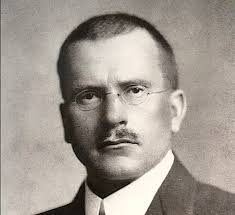
The letters between Bill W. and Dr. Carl Jung The following letter was written by Bill Wilson to the eminent Swiss psychologist & psychiatrist Dr. Carl Gustav Jung, dated 1/23/61.

Sam Shoemaker Shoemakers early influence on AA. Sam Shoemaker, an Episcopal clergyman, played a pivotal role in the early development of Alcoholics Anonymous (AA). Born on December 27, 1893, in
Bill Wilson’s 1944 Alcoholics Anonymous holiday message To all AA members, Greetings on our 10th Christmas, 1944. Yes, its’ in the air! The spirit of Christmas once more warms this
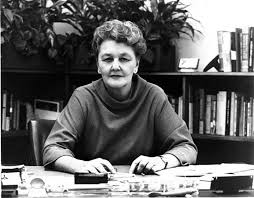
Mrs. Marty Mann Speaks Marty Mann: First Lady of Public Information ALCOHOLICS ANONYMOUS by MRS. MARTY MANN, New York, N.Y. Executive Director, National Committee for Education of Alcoholism, Sponsored by
The primary purpose of East Bay Intergroup, Inc. is to help inform the greater community about AA and alcoholism so that those who need help
can find recovery from alcoholism.
East Bay Intergroup is an organization created and sustained by AA groups in the San Francisco East Bay.
| Cookie | Duration | Description |
|---|---|---|
| cookielawinfo-checkbox-analytics | 11 months | This cookie is set by GDPR Cookie Consent plugin. The cookie is used to store the user consent for the cookies in the category "Analytics". |
| cookielawinfo-checkbox-functional | 11 months | The cookie is set by GDPR cookie consent to record the user consent for the cookies in the category "Functional". |
| cookielawinfo-checkbox-necessary | 11 months | This cookie is set by GDPR Cookie Consent plugin. The cookies is used to store the user consent for the cookies in the category "Necessary". |
| cookielawinfo-checkbox-others | 11 months | This cookie is set by GDPR Cookie Consent plugin. The cookie is used to store the user consent for the cookies in the category "Other. |
| cookielawinfo-checkbox-performance | 11 months | This cookie is set by GDPR Cookie Consent plugin. The cookie is used to store the user consent for the cookies in the category "Performance". |
| viewed_cookie_policy | 11 months | The cookie is set by the GDPR Cookie Consent plugin and is used to store whether or not user has consented to the use of cookies. It does not store any personal data. |